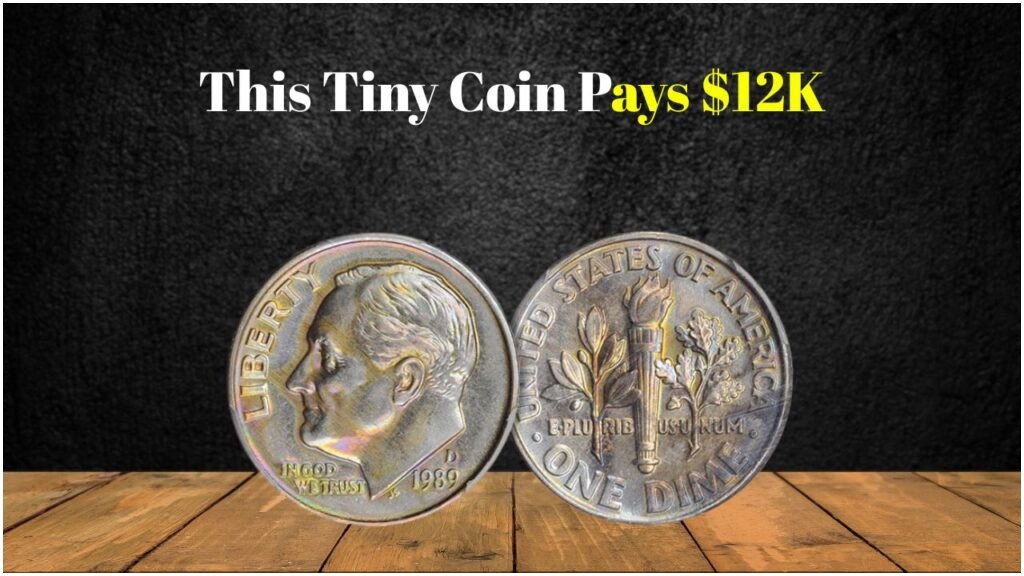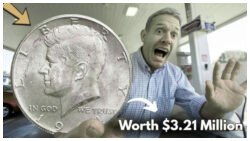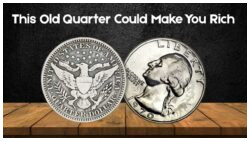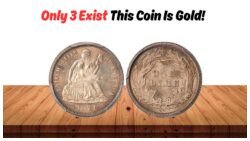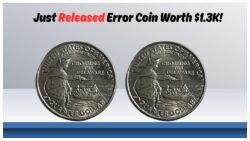1989 Roosevelt Dime – If you’ve been tossing your spare change into a jar without giving it a second glance, it might be time to look again. A seemingly ordinary 1989 Roosevelt dime, when missing one small detail — the mint mark — could be worth as much as $12,000 to the right collector. What’s even more exciting is that some of these error dimes are still floating around in everyday circulation, waiting to be discovered.
Why the 1989 Roosevelt Dime Is Special
The Roosevelt dime has been in production since 1946, but the 1989 version without a mint mark is especially unique due to a rare minting error. Mint marks (like “P” for Philadelphia, “D” for Denver, and “S” for San Francisco) indicate where a coin was produced. In 1989, all dimes minted in Philadelphia should have had a “P” mint mark — but a small number didn’t.
This omission was not intentional. The missing mint mark on some 1989 Roosevelt dimes happened due to a die error, making them incredibly valuable to collectors.
Key Features of the Valuable 1989 Dime
Below are the most important identifiers to check if you suspect you might have one of these rare dimes in your pocket:
- Date: 1989
- No mint mark: Should appear blank where the “P” normally would be
- Condition: The coin must be in near-perfect or uncirculated condition to reach top dollar
- Weight: Standard weight of 2.27 grams
- Composition: 91.67% copper, 8.33% nickel
Collectors prize coins with such anomalies, especially if they are authentic and certified.
How Much Is the 1989 No-Mint-Mark Dime Worth?
While a regular 1989 dime is worth just 10 cents, one of these rare no-mint-mark error coins can fetch between $2,000 to $12,000 depending on its condition, rarity, and demand at the time of sale.
| Coin Type | Estimated Value Range |
|---|---|
| Regular 1989 Dime (with P) | $0.10 |
| 1989 Dime (worn, no mark) | $500 – $2,000 |
| 1989 Dime (uncirculated) | $5,000 – $12,000 |
| Graded MS-67 or higher | $10,000+ |
The highest recorded auction sale for a flawless, mint condition no-mint-mark 1989 Roosevelt dime reached $12,000 in early 2024.
Why Do Missing Mint Marks Make a Coin Valuable?
Missing mint marks are considered mint errors, and error coins are highly desirable among numismatists (coin collectors). These kinds of mistakes usually occur when a die is accidentally not stamped with the proper mint mark before production begins.
Here’s why collectors love these coins:
- Rarity: Very few are produced before the mistake is caught.
- Authenticity: Verified error coins are harder to fake.
- Historical curiosity: They tell a story about how quality control failed.
In the case of the 1989 Roosevelt dime, the lack of a “P” mint mark makes it one of the most sought-after modern dime errors.
How to Check If You Have One
Think you might have this coin in your spare change or collection? Here’s how to identify it:
Step-by-Step Check
- Examine the Date: Look for the year 1989.
- Look for Mint Mark: Check above the date on the obverse side — if there’s no “P”, “D”, or “S”, you may have a rare coin.
- Inspect the Condition: The more pristine, the better. A clean, sharp coin fetches higher prices.
- Weigh It: Confirm that the coin weighs around 2.27 grams to ensure it hasn’t been altered.
- Get It Authenticated: Send it to a certified coin grading service like PCGS or NGC for evaluation.
| Step | What to Look For | Tools Needed |
|---|---|---|
| 1 | 1989 date | Naked eye |
| 2 | No mint mark above date | Magnifying glass |
| 3 | Sharp edges and no damage | Light source |
| 4 | Accurate weight (2.27 g) | Digital scale |
| 5 | Professional authentication | PCGS/NGC submission |
Where Can You Sell It?
Once you’re confident that your 1989 no-mint-mark dime is legit, there are several platforms where you can sell it:
Popular Selling Platforms
- eBay – Great for reaching a wide audience of collectors
- Heritage Auctions – Trusted for high-value collectibles
- GreatCollections.com – Coin-specific auction house
- Local coin dealers – For quick, in-person appraisals
Make sure your coin is graded and certified if you’re aiming for a price above $5,000.
Tips to Avoid Getting Scammed
Rare coins like these can attract forgeries. Protect yourself with these precautions:
- Buy or sell only through verified dealers or platforms
- Request or offer certification from PCGS or NGC
- Avoid cleaning the coin — it can lower its value
- Check for coin edge damage or signs of tampering
The idea that a simple dime could be worth thousands is mind-blowing — yet very real. The 1989 Roosevelt dime without a mint mark stands as a perfect example of how tiny manufacturing oversights can turn ordinary coins into valuable collectibles.
So, next time you dump your change out on the counter, give those dimes a second glance. That one coin you’ve overlooked for years might just be your $12,000 payday.
FAQs
Q1. What makes the 1989 Roosevelt dime without a mint mark valuable?
A1. The missing mint mark is a rare minting error, making it extremely desirable to collectors.
Q2. Where should the mint mark be on a normal 1989 dime?
A2. Above the date on the obverse side — usually a “P” for Philadelphia.
Q3. How can I know if my dime is the valuable one?
A3. Look for a 1989 date and no mint mark. If found, have it authenticated and graded.
Q4. Can a circulated coin still be worth money?
A4. Yes, but uncirculated or mint-condition coins are worth more — up to $12,000.
Q5. Is it safe to sell on eBay?
A5. Yes, if you use certified grading and work with verified buyers or auction houses.

